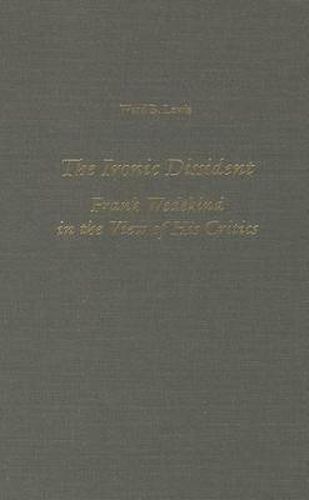Readings Newsletter
Become a Readings Member to make your shopping experience even easier.
Sign in or sign up for free!
You’re not far away from qualifying for FREE standard shipping within Australia
You’ve qualified for FREE standard shipping within Australia
The cart is loading…






This volume examines the criticism generated not just by Wedekind’s drama, but also by his often neglected poetry and prose, giving summaries of the historically important trends in their reception and offering a chronological survey of critical voices. Wedekind’s works appeared from 1890 to shortly before his death in 1918: most were controversial, outraging the conventions, and late Victorian censorship restricted stage performance. During the Weimar Republic, Wedekind’s work enjoyed great popularity on the stage, and although he was marginalised by the Third Reich, his reputation continued to grow after the Second World War; critics have emphasised his influence on Bertolt Brecht and the Expressionist movement (with which he is sometimes identified), and the Theatre of the Absurd, as represented by the Swiss playwrights Max Frisch and Friedrich Durrenmatt. The late 1980s marked a renaissance in Wedekindresearch; however, The Ironic Dissident is the first work in any language to engage with the criticism of his poetry, prose, and individual dramas within an historical chronology.
$9.00 standard shipping within Australia
FREE standard shipping within Australia for orders over $100.00
Express & International shipping calculated at checkout
This volume examines the criticism generated not just by Wedekind’s drama, but also by his often neglected poetry and prose, giving summaries of the historically important trends in their reception and offering a chronological survey of critical voices. Wedekind’s works appeared from 1890 to shortly before his death in 1918: most were controversial, outraging the conventions, and late Victorian censorship restricted stage performance. During the Weimar Republic, Wedekind’s work enjoyed great popularity on the stage, and although he was marginalised by the Third Reich, his reputation continued to grow after the Second World War; critics have emphasised his influence on Bertolt Brecht and the Expressionist movement (with which he is sometimes identified), and the Theatre of the Absurd, as represented by the Swiss playwrights Max Frisch and Friedrich Durrenmatt. The late 1980s marked a renaissance in Wedekindresearch; however, The Ironic Dissident is the first work in any language to engage with the criticism of his poetry, prose, and individual dramas within an historical chronology.